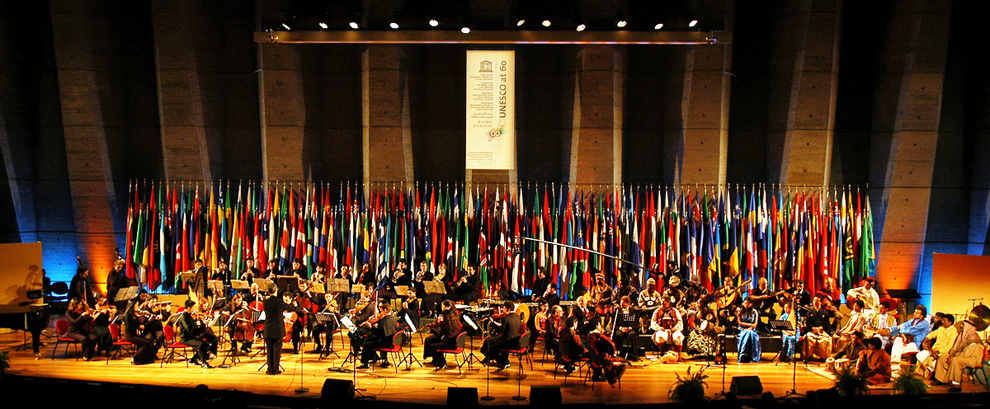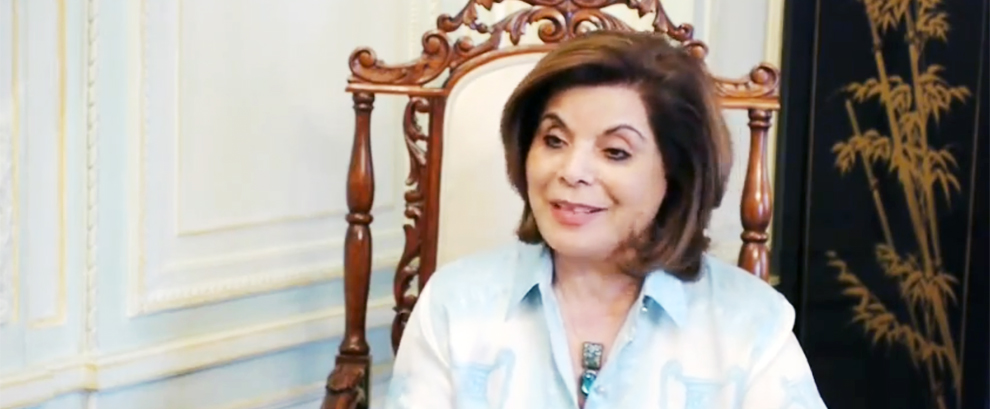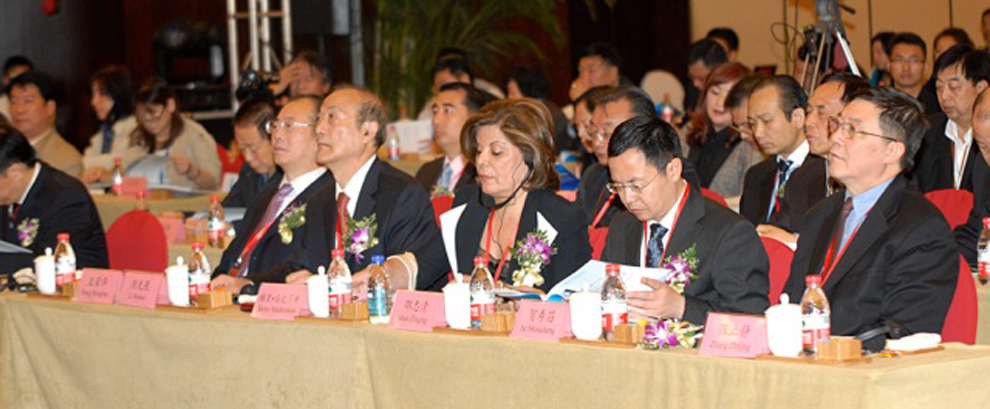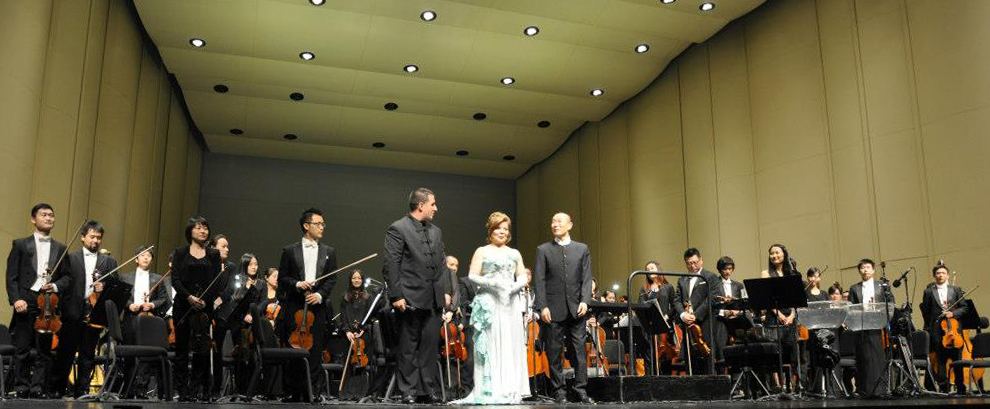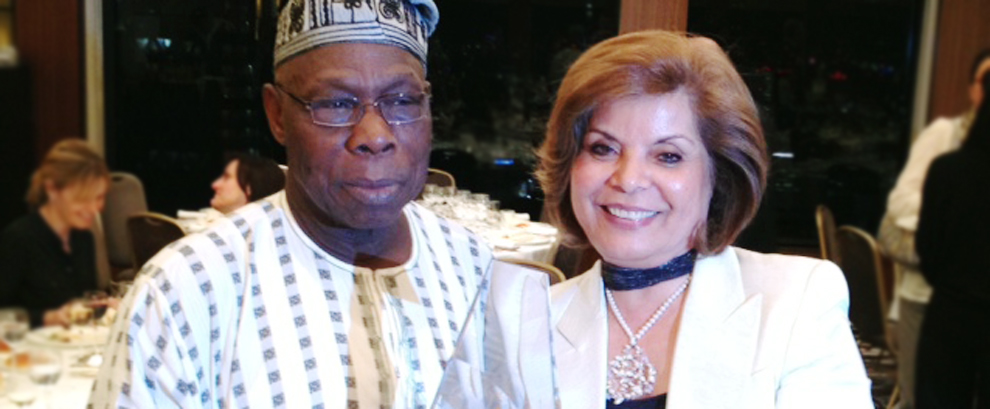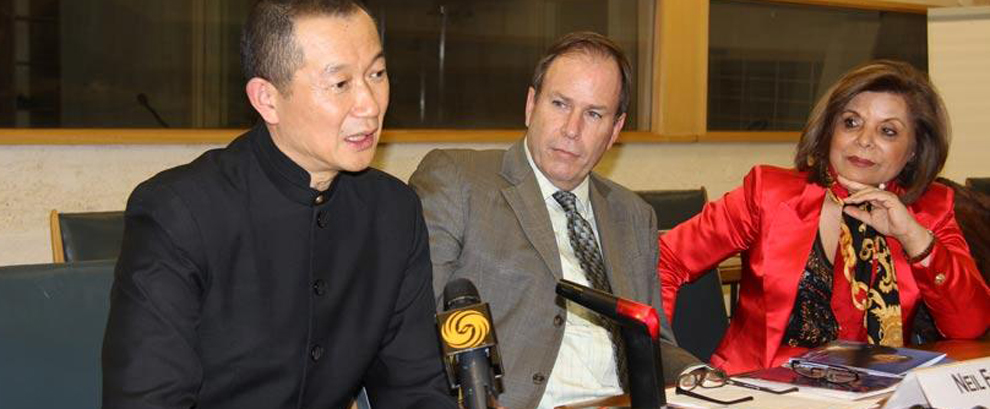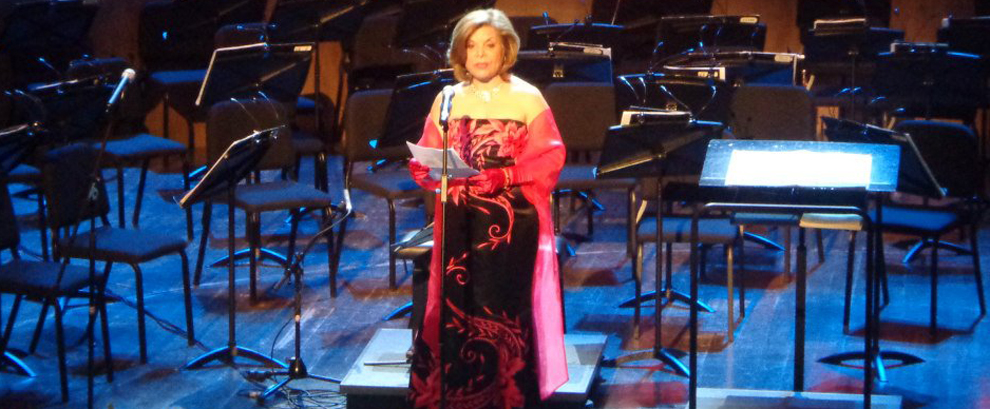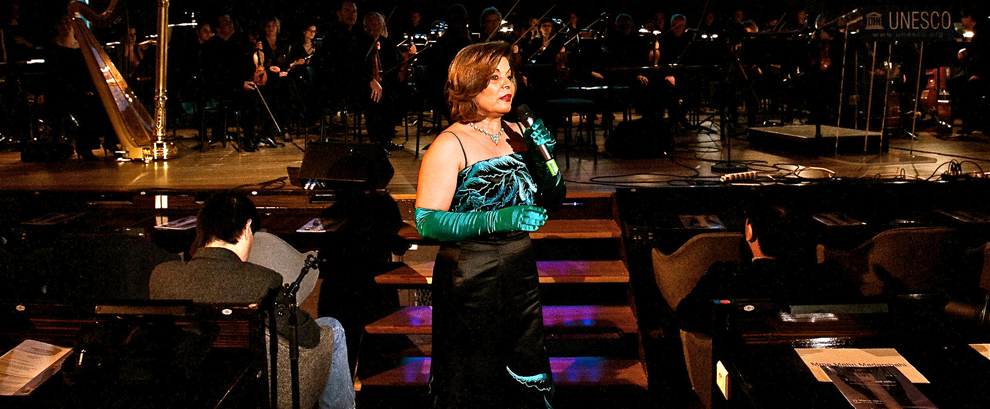MaximsNews Network
By Mehri Madarshahi
I met with President Olusegun Obasanjo of Nigeria during his recent visit to Paris.
This coincided with the gathering of Finance Ministers of the G-8 countries in London to prepare the proposal for a debt relief scheme in favor of Highly Indebted Poor Countries (HIPC), especially in Africa.
President Obasanjo who is also the Chairman of African Union and Chairs the Implementation Committee of NEPAD, welcomed the news as an important step which could go a long way towards helping the beneficiaries to achieve a sustainable external debtposition.
Nevertheless, he expressed regret that Nigeria as the most populous and a poor African country appeared not to be included among the group of countries benefiting from the initiative.
He referred to a frequently invoked argument that Nigeria as an oil-producing country should and could not qualify for debt cancellation.
“Granted, Nigeria is an oil-producing country producing some 2 million barrels of oil per day. If, however, the income is divided among 126 million citizens, each would only receive 50 cent a day, precisely the sum we have to pay for our debt services.”
He continued passionately, “In light of our prevailing economic and social problems, we are facing similar problems as all the HIPC countries. Therefore, we should have a great expectation for a new solution that could emerge from the upcoming G-8 meeting. The debt issues must be resolved before we are being held responsible for lack of performance in achieving the goals of the 2000 Millennium Declaration”.
Today’s major economic stumbling block for Africa and Nigeria in particular is the debtburden.
The country’s external debt has risen to US$35.6 billion, tantamount to one third of theGNP.
The debt servicing costs to Nigerian people translate into some 50 cents per person per day- this in a country where close to half of the population lives below the poverty line of earning US$1 a day.
In Obasanjo’s view, this is immoral and unacceptable.
Nigeria like many other countries of the third world is in dire need of investment in order to attain the Millennium Development Goals established by the UN General Assembly in the year 2000.
“We need to invest in education, food security, power, transport, environment and all others challenges which we have accepted to undertake, before the deadline of 2015 approaches. So, today the issue is no longer whether the debt burden “should” or “shouldnot” be lifted. Rather, the issue is the “mechanism” of when and how”. Debt relief should not be considered charity but rather justice”.
He added thoughtfully, “I guess it will be very difficult to attain the MDG targets if thelevel of ODA and trade remain at their present marginal levels. We continue to believe thathomegrown poverty reduction strategies should lie at the heart of development plans. Atthe same time, without more opportunities for trade, low-income countries will not be ableto achieve the kind of sustained and rapid growth that could lead to meaningful povertyreduction”.
President Obasanjo is a great believer in trade and its liberalization. He stressed that “thiscould make up and eventually replace the present slack in the shrinking ODA flows”.
The G-8 summit will be held in the first week of July in the United Kingdom and President Obasanjo will represent Africa.
In that regard he noted that “the meeting takes place at a time when increased effort isneeded by development partners to secure the commitments made at Monterrey three yearsago. This (G-8) meeting marks an important milestone in achieving the MDGs by 2015. Towards that objective it is essential that the meeting carefully examine what has beenachieved, what remains to be done and how each partner can most effectively contribute to that effort”.
Turning to developments in Nigeria, President Obasanjo recalled,
“When we took it over, the country was only a country in name and a shadow of itself. Itsinfrastructures – from roads to transports, from health care to education, from itsemployment indicators to its human structures – were nearly in a state of completebreakdown. The Nigerian Airways could not take off due to fuel shortages and were almost bankrupt. The runways were not repaired owing to negligence of the central Government. Corruption was rampant and a state of chaos was the order of the day”.
This was the aftermath of the military dictatorship of Gen. Sani Abacha. This was during the time when private citizen Olusegun Obasanjo – chicken farmer, Chairman of the Africa Leadership Forum and former head of state – was imprisoned on trumped-up charges and wasted away for three years, three months and three days.
After his release, Obasanjo ran for election and was democratically elected in 1999 and re-elected in 2003 for a second term as President of the Federal Republic of Nigeria.
In his six years in office, he faced formidable political, economic and social challenges.
Ethnic strife between Muslims and Christians and other groups persisted and threatened the integrity of this multi-ethnic and multi-lingual (with more than 270 languages) country.
Obasanjo addressed these challenges seriously and deftly. As a first step he began to revamp the economy, severely undermined by corruption and poor macroeconomicmanagement.
His economic reforms aimed at introducing a painful process of diversification to relieve Nigeria of its almost total dependency on oil, gas and related products.
The reform of the agricultural sector – largely at the subsistence level and dependent on significant imports – yielded early results, when Nigeria despite its population growth,succeeded in exporting some 500,000 tons of grain to other African countries and attaining self-sufficiency in the production of cassava, vegetable oil, coco and poultry stocks.
Inflation was reduced to single digit figures and GDP rose 7% annually. A successful diversification of the economy to date remains elusive, as oil still accounts for 20% ofGDP, 95% of foreign exchange earnings and about 65% of revenues of the federal budget.
Obasanjo’s National Economic Empowerment and Development Strategy programme (NEEDS)shows promising signs of kick-starting the economy.
“The underpinning thrust of the current government policy to fight poverty is to enable thepoor and more vulnerable sections of society to achieve sustainable livelihoods. Theapproach is to economically empower communities, families and individuals through asustained, well-coordinated and comprehensive programme of poverty alleviation” President Obasanjo stated.
“Security concern is another problem. Unstable infrastructure and the unprecedentedincrease in population coupled with a rapid rate of urbanization have brought aboutsignificant settlement issues related to housing, overcrowding, traffic congestion,environmental degradation and inadequate services.
“It is a combination of difficulties we inherited and now have to cope with. Touch- and go-solutions, although applied out of necessity, could hardly address the problems” he added.
Obasanjo’s Government has taken steps to attract investors given its pool of low-cost labor(with 43%under the age of 20), abundant natural resources and by far the largest domesticmarket in Africa.
Nevertheless, “…,challenges of attracting foreign investment in the present environmenthave been formidable. Nigeria receives today only US$ 250 million of Foreign Direct Investment (FDI) and our efforts to increase this amount have been so far frustrated.”
A strong advocate of human rights, Obasanjo has carried out investigations into humanrights abuses under military rule in Nigeria and has released a significant number of political prisoners. With the creation of an Independent Corrupt Practices Commission, he is also cracking down on corruption.
Turning to various proposals for UN reform, I asked the President how he would see thepossibility of Africa to gain permanent seats in an expanded Security Council and whatNigeria would do to be selected.
He reflected for a moment and then responded “Today, there are some who believe havinga say in the Security Council is one of the most important targets. Although it may be so,for me what is more important is economic reform and the restructuring of the Africaneconomies. This could lead to reduction of poverty, HIV/AIDS and tackling endemic healthproblems.
“Equally important are improvements in the educational system, with respect to informationand communications technologies (how to bridge the gap between haves and haves not) and the management of the environment and water resources.
“Therefore, occupying a permanent seat in the Security Council by itself can not represent much. Representation in the true meaning of the word is what normally is not truly dealtwith and is often brushed aside”.
He continued by saying,
“Our homegrown initiative –a few years ago- for Africa’s development (NEPAD) has gained an important momentum. After some period of nascence, NEPAD is now being considered aframework or plan of action of the African Union. The most important element in NEPAD isits “Peer Review” mechanism.
“Over 30 of the 53 African counties have signed this instrument which requires adhering togood governance and the rule of law.
“For the first three years of the review, six countries have already been selected: Ghanaand Rwanda (2005), Kenya and Mauritius (2006) and Nigeria and Algeria (2007).
“The preliminary round will identify best practices and provide an evaluation of theworkability of this mechanism. It is a new approach that will be creating trust, at homeand abroad.”
About President Olusegun Obasanjo
Chief Olusegun Obasanjo is the President of the Federal Republic of Nigeria. He was first democratically elected President in 1999 and re-elected for a second term in April 2003,winning more than 60% of the vote.
Born in 1937, Chief Obasanjo hails from the southwestern Yoruba people. He joined thearmy in 1958 and helped to end the Biafra Civil War (1967-70). After the assassination ofHead of State, General Murtala Mohammed in 1976, Obasanjo succeeded him.
In 1979 he earned the distinction of becoming Africa’s first military leader to hand over voluntarily power to a civilian President and government, resulting from democratic elections. Upon retirement from Government and the army, he set up a farm in Ota, Ogun State.
He founded the Africa Leadership Forum and served on many international commissions and initiatives.
In 1995 Obasanjo was jailed for his part in an alleged coup plot against military dictator, General Sani Abacha. Following Abacha’s death more than three years later, he was set free by the new military leader at the time, General Abdulsalami Abubakar.
In the international arena, Obasanjo helped to establish the New Partnership for AfricanDevelopment (NEPAD), whose central goal is to engineer a common agenda for Africa’s economic growth. He serves as Chairman of the NEPAD Implementation Committee.
In 2003 he was instrumental in restoring political stability and peace to Liberia and Sao Tome and Principe. Obasanjo is also current Chairman of the Commonwealth and of the African Union.


